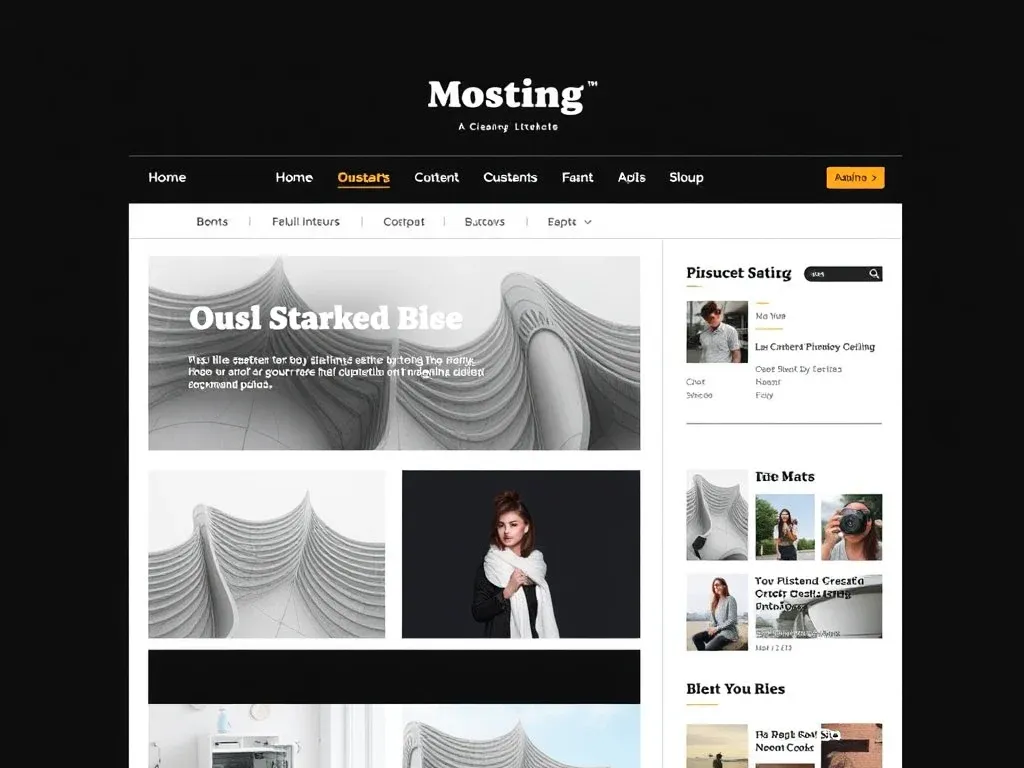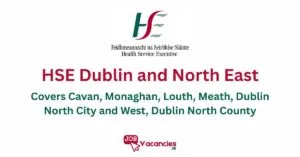Table of Contents
- Table of Contents
- Introduction
- Legal Framework for Equality in Ireland
- Employment Equality Acts 1998-2015
- Equal Status Acts 2000-2018
- Irish Human Rights and Equality Commission Act 2014
- Gender Pay Gap Information Act 2021
- Current D&I Landscape in Irish Workplaces
- Demographic Changes
- Multinational Influence
- Current Challenges
- Industry Variations
- The Business Case for Diversity and Inclusion
- Enhanced Innovation and Problem-Solving
- Improved Financial Performance
- Talent Attraction and Retention
- Enhanced Customer Understanding
- Risk Mitigation
- Best Practices for Inclusive Workplaces
- Leadership Commitment
- Comprehensive D&I Strategy
- Inclusive Policies and Procedures
- Education and Training
- Employee Resource Groups (ERGs)
- Inclusive Communication
- Inclusive Recruitment and Hiring
- Inclusive Job Advertisements
- Diverse Sourcing Channels
- Structured Interview Processes
- Bias Mitigation Strategies
- Accessibility in Recruitment
- Retention and Development Strategies
- Inclusive Onboarding
- Equitable Development Opportunities
- Inclusive Benefits and Policies
- Addressing Microaggressions and Exclusion
- Measuring D&I Progress
- Diversity Metrics
- Inclusion Indicators
- Accountability Mechanisms
- Challenges and Solutions
- Data Collection Limitations
- Resistance to Change
- Pipeline Challenges
- Sustaining Momentum
- Irish Success Stories and Case Studies
- Case Study 1: Technology Sector Leadership
- Case Study 2: Financial Services Transformation
- Case Study 3: Public Sector Innovation
- Resources and Support Organizations
- Government and Regulatory Bodies
- Industry and Professional Organizations
- Community and Advocacy Organizations
- Professional Networks
- Future Trends in Workplace Inclusion
- Intersectionality Focus
- Data-Driven Approaches
- Expanded Dimensions of Diversity
- Supplier Diversity
- Inclusion in Remote and Hybrid Work
- Conclusion
- Related Posts
Diversity and Inclusion in Irish Workplaces: Best Practices and Benefits
Reading time: 12 minutes
As Ireland’s workforce becomes increasingly diverse, organizations are recognizing the importance of creating inclusive workplaces. This guide explores the landscape of diversity and inclusion in Irish workplaces, covering legal frameworks, best practices, benefits, challenges, and practical strategies for fostering an inclusive work environment.
Introduction
Ireland has undergone significant demographic changes in recent decades, transforming from a relatively homogeneous society to one characterized by cultural, ethnic, and social diversity. This transformation is reflected in the country’s workplaces, where employers increasingly recognize that diversity is not just a matter of compliance but a strategic advantage.
Diversity and inclusion (D&I) in the workplace encompasses creating an environment where people of all backgrounds, identities, and abilities can thrive professionally. This includes considerations of gender, age, ethnicity, nationality, disability, sexual orientation, socioeconomic background, and more.
For job seekers and employees in Ireland, understanding the D&I landscape can help you identify employers who value diverse perspectives and create truly inclusive cultures. For employers, implementing effective D&I strategies can lead to enhanced innovation, improved employee engagement, and better business outcomes.
Pro Tip:
When researching potential employers in Ireland, look beyond diversity statements on their websites. Check for evidence of inclusive practices such as employee resource groups, diversity in leadership positions, and transparent reporting on diversity metrics.
Legal Framework for Equality in Ireland
Ireland has established a robust legal framework to prevent discrimination and promote equality in the workplace. Understanding these laws is essential for both employers and employees:
Employment Equality Acts 1998-2015
These acts prohibit discrimination in employment on nine specific grounds:
- Gender: Including gender identity and expression
- Civil status: Single, married, separated, divorced, widowed, in a civil partnership
- Family status: Responsibility for someone under 18 or a person with a disability
- Sexual orientation: Heterosexual, gay, lesbian, or bisexual
- Religion: Different religious beliefs or none
- Age: This applies to all ages above the legal working age
- Disability: Includes physical, intellectual, learning, cognitive, or emotional disabilities
- Race: Includes skin color, nationality, ethnicity, and national origins
- Membership of the Traveller community: People identified as Travellers, a traditionally nomadic ethnic group in Ireland
Equal Status Acts 2000-2018
These acts complement the Employment Equality Acts by prohibiting discrimination in the provision of goods and services, accommodation, and educational establishments on the same nine grounds.
Irish Human Rights and Equality Commission Act 2014
This act established the Irish Human Rights and Equality Commission (IHREC) and introduced the Public Sector Equality and Human Rights Duty, requiring public bodies to eliminate discrimination, promote equality, and protect human rights in their daily work.
Gender Pay Gap Information Act 2021
This relatively new legislation requires employers to publish information relating to their gender pay gap. The reporting obligations are being phased in, starting with organizations employing 250+ people, eventually extending to those with 50+ employees.
Important Note:
While these laws provide important protections, they represent minimum standards. Progressive employers in Ireland typically go beyond mere compliance to create truly inclusive workplaces through proactive policies and practices.
Current D&I Landscape in Irish Workplaces
Ireland’s workplace diversity landscape has evolved significantly in recent years, influenced by several key factors:
Demographic Changes
Ireland has experienced substantial immigration over the past two decades. According to the Central Statistics Office, approximately 17% of Ireland’s population was born outside the country as of the 2022 census, significantly increasing workplace diversity.
Multinational Influence
The strong presence of multinational corporations, particularly in the tech and pharmaceutical sectors, has introduced global D&I practices to Ireland. Many of these companies have well-established diversity programs that have influenced Irish workplace culture.
Current Challenges
Despite progress, several challenges remain:
- Gender representation: Women remain underrepresented in senior leadership positions and certain sectors like technology and construction.
- Pay gaps: Gender and ethnicity pay gaps persist across various industries.
- Disability inclusion: Employment rates for people with disabilities remain significantly lower than for the general population.
- Socioeconomic diversity: Access to certain professions and industries can be limited for those from disadvantaged backgrounds.
Industry Variations
D&I maturity varies significantly across industries in Ireland:
- Technology: Generally more advanced in D&I practices, often with dedicated programs and resources.
- Financial services: Increasing focus on diversity, particularly gender balance in leadership.
- Public sector: Subject to the Public Sector Equality and Human Rights Duty, with varying levels of implementation.
- Small and medium enterprises (SMEs): Often have less formal D&I programs but may offer inclusive environments through close-knit workplace cultures.
Pro Tip:
When job hunting in Ireland, research industry-specific D&I initiatives and networks. For example, organizations like Women in Technology and Science Ireland (WITS) or the Irish Centre for Diversity can provide valuable insights and connections in your field.
The Business Case for Diversity and Inclusion
Beyond ethical considerations and legal compliance, there are compelling business reasons for Irish organizations to prioritize diversity and inclusion:
Enhanced Innovation and Problem-Solving
Diverse teams bring together different perspectives, experiences, and thinking styles, leading to more creative solutions and innovation. Research consistently shows that heterogeneous teams outperform homogeneous ones in complex problem-solving scenarios.
Improved Financial Performance
Multiple global studies have demonstrated correlations between diversity (particularly in leadership) and financial performance. Companies with diverse management teams tend to have higher revenues, greater market share, and better returns on equity.
Talent Attraction and Retention
In Ireland’s competitive labor market, particularly for skilled professionals, an inclusive workplace culture is increasingly a deciding factor for job seekers. Organizations with strong D&I reputations can access wider talent pools and retain valuable employees longer.
Enhanced Customer Understanding
A diverse workforce better reflects and understands diverse customer bases. This is particularly important for businesses serving Ireland’s increasingly multicultural population or operating in global markets.
Risk Mitigation
Inclusive organizations with robust D&I governance are less likely to experience discrimination claims, reputational damage from exclusionary practices, or groupthink-induced strategic errors.
Pro Tip:
When interviewing with Irish employers, ask specific questions about how they measure the impact of their D&I initiatives on business outcomes. Companies with mature D&I approaches will be able to articulate clear connections between their inclusion efforts and organizational success.
Best Practices for Inclusive Workplaces
Leading Irish organizations implement several key practices to create truly inclusive work environments:
Leadership Commitment
Successful D&I initiatives start at the top. When senior leaders in Irish organizations visibly champion diversity and model inclusive behaviors, it signals the importance of these values throughout the organization.
Comprehensive D&I Strategy
Effective organizations develop structured D&I strategies with clear goals, metrics, accountability mechanisms, and resources. These strategies are integrated into broader business objectives rather than treated as separate initiatives.
Inclusive Policies and Procedures
Progressive Irish employers review and update their policies and procedures to remove unintentional barriers and biases. This includes flexible working arrangements, parental leave policies, religious accommodation, and accessibility considerations.
Education and Training
Ongoing education helps build awareness and develop inclusive behaviors. Effective training programs in Irish workplaces address unconscious bias, cultural competence, inclusive leadership, and allyship.
Employee Resource Groups (ERGs)
Many larger Irish organizations support ERGs—voluntary, employee-led groups that foster a diverse, inclusive workplace. Common ERGs focus on gender, LGBTQ+ inclusion, disability, ethnicity, or parenting.
Inclusive Communication
Inclusive organizations pay attention to how they communicate, ensuring language and imagery reflect diversity, avoiding stereotypes, and creating accessible communications for all employees.
Important Note:
Effective D&I practices are not one-size-fits-all. The most successful approaches are tailored to an organization’s specific context, challenges, and goals while remaining responsive to employee feedback and evolving best practices.
Inclusive Recruitment and Hiring
Creating a diverse workforce begins with inclusive recruitment practices. Leading Irish employers implement several strategies to attract and select diverse talent:
Inclusive Job Advertisements
Progressive employers craft job descriptions using inclusive language, focusing on essential requirements rather than creating unnecessary barriers. They avoid gendered terms, industry jargon that might exclude certain candidates, and overly long lists of “required” qualifications.
Diverse Sourcing Channels
To reach diverse candidate pools, forward-thinking Irish organizations:
- Partner with diverse professional networks and community organizations
- Attend specialized career fairs (e.g., those focused on graduates from disadvantaged backgrounds)
- Utilize job boards that target underrepresented groups
- Implement employee referral programs with a diversity focus
Structured Interview Processes
Structured interviews with consistent questions and evaluation criteria help minimize unconscious bias. Many Irish employers also implement:
- Diverse interview panels
- Skills-based assessments that focus on job-relevant capabilities
- Blind resume screening to reduce initial bias
- Clear evaluation rubrics to ensure consistent candidate assessment
Bias Mitigation Strategies
Leading organizations train hiring managers and recruiters to recognize and mitigate unconscious biases. Some implement technological solutions like AI tools that help identify potentially biased language in job descriptions or standardize parts of the screening process.
Accessibility in Recruitment
Inclusive employers ensure their recruitment processes are accessible to candidates with disabilities by:
- Creating accessible online application systems
- Providing reasonable accommodations during interviews and assessments
- Training recruiters on disability etiquette and inclusive interviewing
- Highlighting workplace accommodations and accessibility features
Pro Tip for Job Seekers:
Research how potential employers approach diversity in their hiring processes. Look for signals like diversity statements in job postings, information about accommodations for candidates with disabilities, and diverse representation in company materials and at recruitment events.
Retention and Development Strategies
Attracting diverse talent is only the beginning; creating an environment where all employees can thrive is equally important. Leading Irish organizations implement several strategies to retain and develop diverse talent:
Inclusive Onboarding
Effective onboarding programs help new employees from all backgrounds feel welcome and set up for success. This includes:
- Buddy or mentor systems that provide personalized support
- Introduction to relevant employee resource groups
- Clear communication about inclusion policies and resources
- Cultural orientation for international employees
Equitable Development Opportunities
Progressive employers ensure all employees have fair access to:
- Formal and informal mentoring
- Sponsorship programs where senior leaders advocate for high-potential diverse talent
- Stretch assignments and high-visibility projects
- Leadership development programs with diverse participation targets
Inclusive Benefits and Policies
Forward-thinking Irish organizations design benefits and policies that support diverse needs:
- Enhanced parental leave for all parents, regardless of gender
- Flexible working arrangements that accommodate different life circumstances
- Religious and cultural accommodations (e.g., prayer rooms, floating holidays)
- Comprehensive health benefits that address diverse needs
- Employee assistance programs with culturally competent providers
Addressing Microaggressions and Exclusion
Creating truly inclusive environments requires addressing subtle forms of exclusion:
- Clear policies and reporting mechanisms for addressing microaggressions
- Training on recognizing and responding to exclusionary behaviors
- Active bystander intervention programs
- Regular culture assessments to identify exclusionary practices
Important Note:
Retention strategies should be informed by data and employee feedback. Leading Irish employers conduct regular stay interviews, exit interviews, and pulse surveys to understand the experiences of different employee groups and identify areas for improvement.
Measuring D&I Progress
“What gets measured gets managed” is particularly relevant for D&I initiatives. Leading Irish organizations implement robust measurement approaches:
Diversity Metrics
Key metrics tracked by progressive organizations include:
- Representation metrics: Demographic composition across levels, departments, and roles
- Recruitment metrics: Diversity of applicant pools, interview slates, and new hires
- Advancement metrics: Promotion rates and time-in-role across different demographic groups
- Retention metrics: Turnover rates and reasons by demographic group
- Pay equity metrics: Compensation analysis across comparable roles
Inclusion Indicators
Measuring inclusion is more complex but equally important. Approaches include:
- Employee surveys: Questions specifically designed to measure belonging, psychological safety, and fair treatment
- Focus groups: Structured discussions to gather qualitative insights about inclusion experiences
- Participation metrics: Engagement in voluntary programs, speaking up in meetings, idea submission
- Network analysis: Examining communication patterns and collaboration across different groups
Accountability Mechanisms
Leading organizations create accountability for D&I progress through:
- Regular reporting to leadership and boards
- Tying manager performance evaluations and compensation to D&I outcomes
- Transparent communication of metrics and progress to employees
- External reporting through annual reports or dedicated D&I reports
Pro Tip for Job Seekers:
When researching potential employers, look for those that publicly share their diversity metrics and inclusion goals. Organizations that are transparent about their current state and future targets typically have more mature D&I approaches.
Challenges and Solutions
Creating truly inclusive workplaces in Ireland comes with several challenges. Understanding these challenges and potential solutions can help organizations make meaningful progress:
Data Collection Limitations
Challenge: Irish data protection laws and cultural sensitivities can make collecting comprehensive diversity data difficult.
Solutions:
- Implement voluntary self-identification with clear explanations of how data will be used
- Ensure robust data privacy protections and anonymized reporting
- Use qualitative methods like focus groups to supplement quantitative data
Resistance to Change
Challenge: Some employees may resist D&I initiatives due to misconceptions about “reverse discrimination” or concerns about changing workplace norms.
Solutions:
- Frame D&I as beneficial for all employees, not just underrepresented groups
- Provide education about the business case and ethical imperatives for inclusion
- Engage resistors in dialogue rather than dismissing their concerns
- Highlight success stories that demonstrate positive outcomes
Pipeline Challenges
Challenge: Some industries face genuine pipeline challenges for certain underrepresented groups due to educational patterns or historical barriers.
Solutions:
- Invest in long-term pipeline development through educational partnerships
- Create apprenticeship or returnship programs to develop non-traditional talent
- Reassess qualification requirements that may create unnecessary barriers
- Partner with community organizations to reach untapped talent pools
Sustaining Momentum
Challenge: D&I initiatives often start with enthusiasm but lose momentum when progress is slow or other business priorities emerge.
Solutions:
- Integrate D&I objectives into core business strategies and processes
- Create formal accountability mechanisms with regular progress reviews
- Celebrate small wins while maintaining focus on long-term goals
- Secure adequate resources and dedicated personnel for D&I work
Important Note:
Addressing D&I challenges requires a systemic approach rather than quick fixes. Organizations should be prepared for a long-term commitment with both short-term actions and strategic initiatives that address root causes of inequity.
Irish Success Stories and Case Studies
Several Irish organizations have implemented noteworthy D&I initiatives that demonstrate effective approaches:
Case Study 1: Technology Sector Leadership
A leading multinational technology company with a significant Dublin presence has implemented several successful initiatives:
- Returnship program: Specifically designed for women returning to work after career breaks, providing mentoring, flexible work arrangements, and skills refreshers.
- Neurodiversity hiring program: Modified recruitment processes to better accommodate candidates with autism, ADHD, and other neurodivergent conditions.
- Reverse mentoring: Pairing senior leaders with employees from underrepresented groups to increase understanding and awareness.
Results: 40% increase in female representation in technical roles over three years; 90% retention rate for returnship participants; significant improvements in leadership inclusion scores.
Case Study 2: Financial Services Transformation
A traditional Irish financial institution has transformed its approach to diversity and inclusion:
- Comprehensive data strategy: Implemented voluntary self-identification across multiple dimensions of diversity with 85% participation rate.
- Inclusive leadership capability building: All people managers complete a six-month inclusive leadership development program.
- Client-facing diversity: Ensuring customer-facing teams reflect the diversity of the communities they serve.
Results: Gender-balanced leadership team achieved two years ahead of target; 25% reduction in attrition among minority ethnic employees; significant improvement in customer satisfaction scores in diverse communities.
Case Study 3: Public Sector Innovation
A large Irish public sector organization has implemented innovative approaches to inclusion:
- Targeted recruitment campaigns: Partnering with community organizations to reach candidates from underrepresented backgrounds.
- Accessibility transformation: Comprehensive review and enhancement of physical spaces, digital tools, and work processes to improve accessibility.
- Inclusion ambassadors: Network of trained employees who promote inclusive practices within their departments.
Results: Doubled the hiring rate of people with disabilities over two years; significant improvements in employee engagement scores across all demographic groups; recognized with national awards for inclusive employment practices.
Pro Tip:
Look for organizations that share specific, measurable outcomes from their D&I initiatives rather than just aspirational statements. Companies with case studies and concrete results typically have more mature and effective inclusion approaches.
Resources and Support Organizations
Ireland has a growing ecosystem of organizations that support workplace diversity and inclusion efforts:
Government and Regulatory Bodies
- Irish Human Rights and Equality Commission (IHREC): Provides guidance on equality legislation, conducts research, and offers training resources.
- Workplace Relations Commission: Handles complaints related to employment discrimination and provides information on employment rights.
- Department of Children, Equality, Disability, Integration and Youth: Develops policy and provides resources related to equality and inclusion.
Industry and Professional Organizations
- Irish Centre for Diversity: Offers the Investors in Diversity accreditation and provides training and consultancy services.
- 30% Club Ireland: Campaigns for greater gender balance on boards and in senior management.
- IBEC Diversity Forum: Network for employers to share best practices and resources on diversity and inclusion.
- Open Doors Initiative: Supports marginalized groups to access employment opportunities through education, training, and workplace opportunities.
Community and Advocacy Organizations
- BelongTo: Supports LGBTQ+ young people and provides workplace training on LGBTQ+ inclusion.
- National Women’s Council of Ireland: Advocates for gender equality and provides resources on gender inclusion in the workplace.
- AsIAm: Ireland’s national autism charity, offering workplace training and consultancy on neurodiversity inclusion.
- Immigrant Council of Ireland: Provides support for immigrant integration and offers workplace training on cultural diversity.
- National Disability Authority: Provides guidance on disability inclusion and accessibility in employment.
Professional Networks
- Professional Women’s Network (PWN) Dublin: Supports the professional development of women through networking, mentoring, and education.
- OUTstanding: Network for LGBT+ executives and their allies.
- Connecting Women in Technology (CWIT): Collaborative initiative aimed at attracting and retaining women in the technology sector.
- Diversity Charter Ireland: Network of organizations committed to effective diversity management and preventing discrimination.
Pro Tip:
These organizations can be valuable resources for both employers and job seekers. For job seekers, they can provide networking opportunities, career development resources, and insights into inclusive employers. For employers, they offer training, consultancy, benchmarking, and best practice sharing.
Future Trends in Workplace Inclusion
The landscape of diversity and inclusion in Irish workplaces continues to evolve. Several emerging trends will shape the future of workplace inclusion:
Intersectionality Focus
Organizations are increasingly recognizing that individuals have multiple, overlapping identities that shape their experiences. Future D&I approaches will move beyond single-dimension initiatives (e.g., gender-only or ethnicity-only) to address the complex interplay of different aspects of identity and disadvantage.
Data-Driven Approaches
As data collection methodologies mature and technology solutions advance, organizations will implement more sophisticated analytics to identify patterns of inequity and measure the impact of interventions. This includes:
- Predictive analytics to identify potential bias in talent decisions
- Natural language processing to analyze inclusive communication
- Network analysis to examine patterns of inclusion and exclusion
Expanded Dimensions of Diversity
While gender, ethnicity, and disability have been primary focus areas, organizations are expanding their understanding of diversity to include:
- Neurodiversity: Creating inclusive environments for people with autism, ADHD, dyslexia, and other neurological differences
- Socioeconomic diversity: Addressing barriers related to social class and economic background
- Generational diversity: Managing and leveraging the strengths of multi-generational workforces
- Thought diversity: Valuing different thinking styles, perspectives, and approaches
Supplier Diversity
Organizations are extending their commitment to diversity beyond their own workforces to their supply chains. This includes setting targets for procurement from businesses owned by underrepresented groups and requiring suppliers to demonstrate their own commitment to diversity and inclusion.
Inclusion in Remote and Hybrid Work
As flexible work arrangements become permanent features of the Irish workplace, organizations are developing new approaches to ensure inclusion in virtual and hybrid environments. This includes:
- Equitable access to visibility and opportunity in hybrid settings
- Inclusive virtual meeting practices
- Preventing proximity bias in performance evaluation and promotion decisions
- Creating belonging in distributed teams
Important Note:
Organizations that anticipate and adapt to these emerging trends will be better positioned to create truly inclusive workplaces and realize the full benefits of diversity. Both employers and employees should stay informed about evolving best practices and be willing to innovate in their approaches to inclusion.
Conclusion
Creating diverse and inclusive workplaces in Ireland is both a moral imperative and a business necessity. As Ireland’s workforce continues to diversify, organizations that excel at inclusion will gain significant advantages in innovation, talent attraction, employee engagement, and market understanding.
For job seekers and employees, understanding the D&I landscape can help you identify employers who truly value diversity and create environments where people from all backgrounds can thrive. Look beyond surface-level diversity statements to assess an organization’s genuine commitment through their actions, policies, and outcomes.
For employers, building truly inclusive workplaces requires a strategic, sustained commitment that goes beyond compliance or isolated initiatives. It involves examining systems, policies, and practices to identify and address barriers to inclusion, while fostering a culture where diversity is valued and leveraged.
The journey toward workplace inclusion is ongoing and evolving. Organizations at the forefront of this journey in Ireland are those that approach diversity and inclusion as core business priorities, measure their progress, hold themselves accountable, and continuously adapt their approaches based on emerging best practices and employee feedback.
By embracing diversity and fostering inclusion, Irish workplaces can create environments where all employees can bring their authentic selves to work, contribute their unique perspectives and talents, and thrive professionally—ultimately driving better outcomes for individuals, organizations, and Irish society as a whole.
Key Takeaways:
- Diversity and inclusion are strategic advantages in Ireland’s competitive business environment
- Effective D&I approaches go beyond compliance to address systemic barriers and create truly inclusive cultures
- Leading organizations implement comprehensive strategies spanning recruitment, retention, development, and accountability
- Job seekers should look for evidence of genuine commitment to inclusion when evaluating potential employers
- The D&I landscape continues to evolve, with emerging trends including intersectionality, expanded dimensions of diversity, and inclusion in remote work







